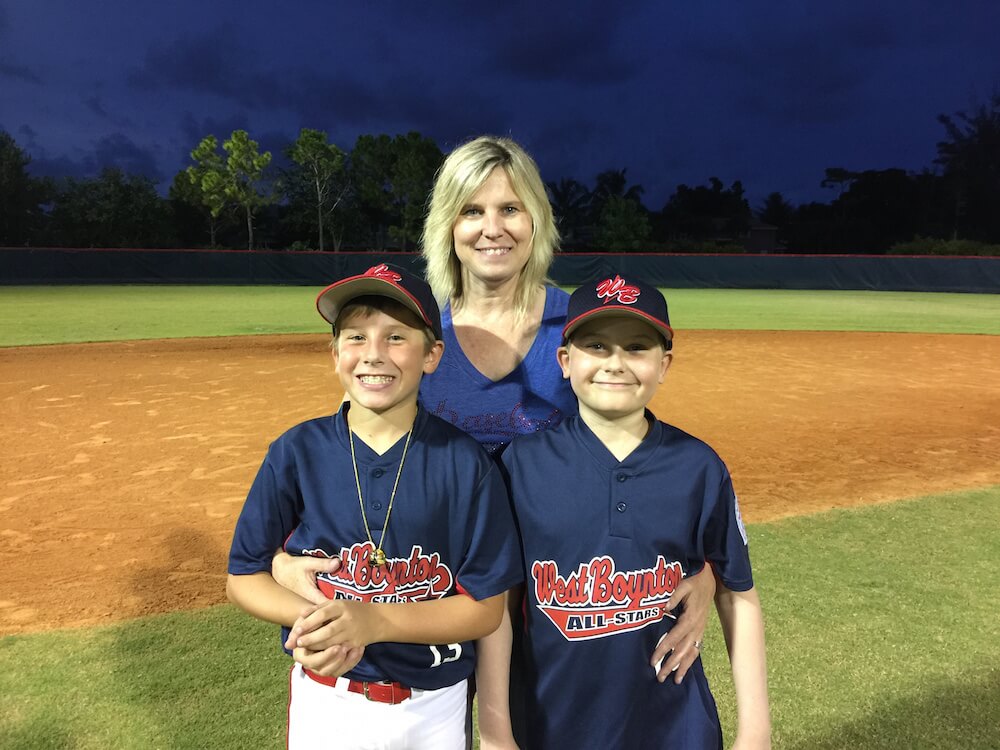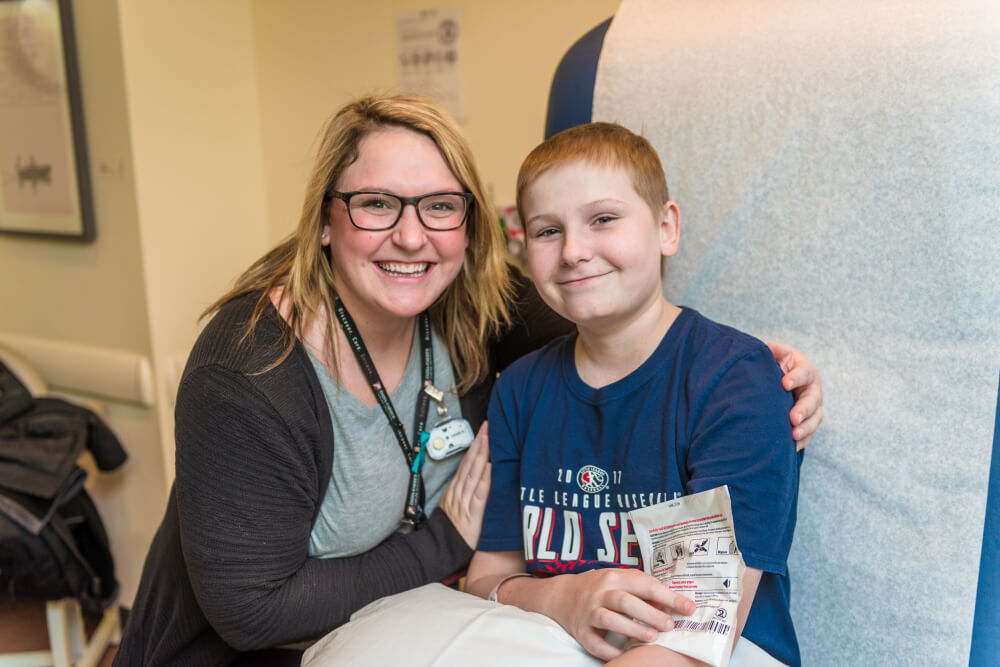After undergoing a promising new treatment for acute lymphoblastic leukemia (ALL), Cole Malone is back to doing what he loves: playing on a flag football team with his twin brother, Michael.
Cole and Michael Malone, who are 14, already know plenty about teamwork. Michael served as a perfect-match donor when Cole underwent a stem cell transplant at Dana-Farber/Boston Children’s Cancer and Blood Disorders Center in 2014. When Cole’s cancer relapsed a second time in early 2018, he became one of the first Dana-Farber/Boston Children’s patients to undergo CAR T-cell therapy, a promising new treatment for some of the most challenging cases in pediatric ALL.
“It’s going to feel really good to go back to my normal self and everything I was doing before this all happened,” says Cole Malone. “Football in the winter, and then baseball in the spring.”

Malone receives general cancer care near his family’s Florida home, but his doctors there sent the family to the experts at Dana-Farber/Boston Children’s for the more complex procedures he would require, including his stem cell transplant and CAR T-cell therapy. Dana-Farber/Boston Children’s is a certified treatment center for KYMRIAH, an FDA-approved CAR T-cell therapy designed specifically for ALL patients 25 or younger who have relapsed at least twice.
“CAR T-cell therapy including KYMRIAH has been a real game-changer for patients like Cole who are unable to undergo a first or repeat transplant,” says Steven Margossian, MD, PhD, Cole Malone’s oncologist at Dana-Farber/Boston Children’s. “We have something to offer them that gives them a real chance at a sustained cure, though patients still need to be closely followed to monitor the CAR T-cells that are still active.”
Although football and baseball are his favorite sports, Cole’s cancer treatment might best be compared to a marathon. He was first diagnosed with ALL at age 2, after an abnormal blood test during a wellness visit at his pediatrician. After three years of chemotherapy treatment in Florida, he was declared cancer-free, but then four years later, when he was 9, an eye exam revealed a swollen optic nerve. The cancer had now spread to his central nervous system, and the Malone family was referred to Dana-Farber/Boston Children’s.
Cole needed a stem cell transplant, and the entire family did a cheek swab test to see if they were donor-compatible, and Michael scored a perfect 10 out of 10 as a match. After playing in a “Cole Strong” baseball tournament held in their West Boynton, Florida community to help defray the family’s expenses, Michael headed to Boston for his life-saving donation.
The latest obstacle for Cole to overcome came in February 2018. He was getting ready for a flag football game when he suddenly lost sensation on the left side of his body. Tests confirmed that the leukemia was back, so the family returned to Dana-Farber/Boston Children’s and Cole started on the KYMRIAH CAR T-cell therapy.

Now, even though he is back to playing sports, Cole continues to be monitored closely. He is seen monthly by his oncologist in Florida, and saw Margossian for a six-month evaluation just after Christmas.
“Everything is going very smoothly for Cole now, but he still needs regular visits and immunoglobulin replacement,” says Margossian. “CAR T-cells also destroy normal B-lymphocytes, the cells in the body that are responsible for producing antibodies, and have acute effects on blood pressure and neurologic toxicities.
Research is ongoing at Dana-Farber/Boston Children’s and other centers, Margossian says, to improve on the dramatic responses seen thus far. In the meantime, Cole has returned to life as usual.
“I know Cole is feeling better because he has begun to fight with his brother again,” Chris Malone says with a laugh.
